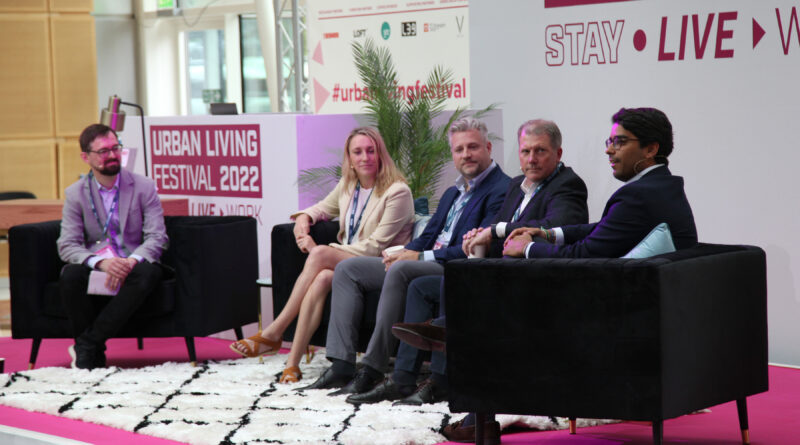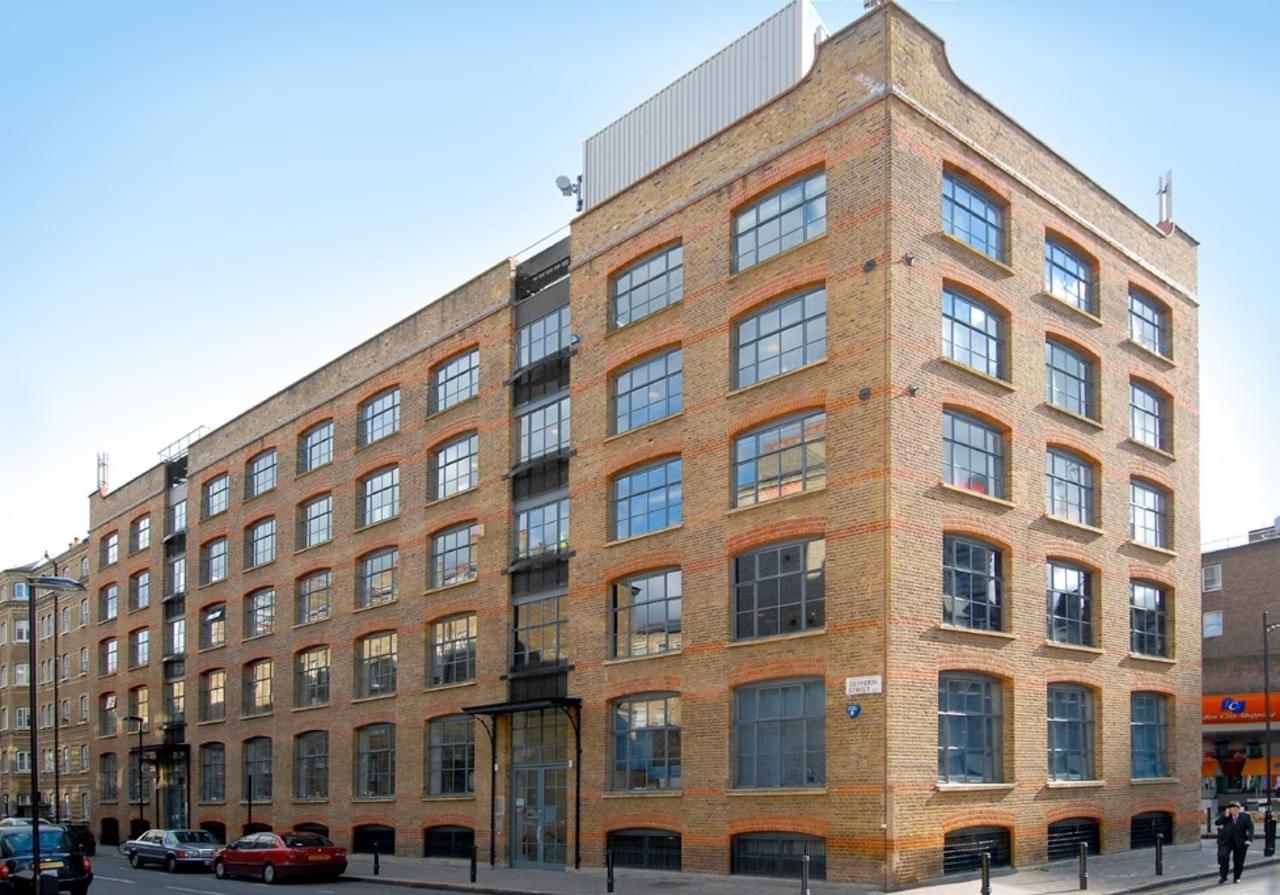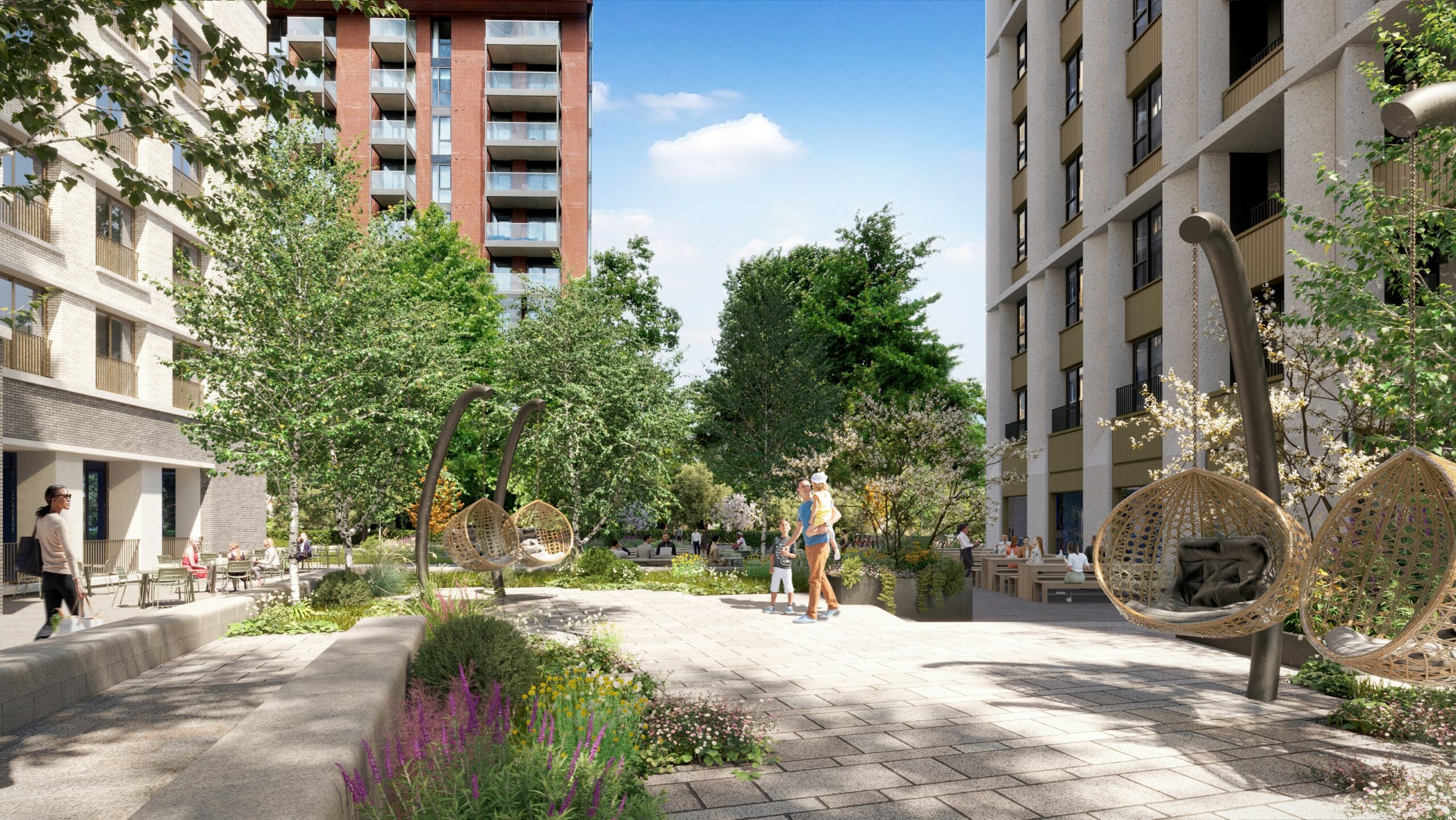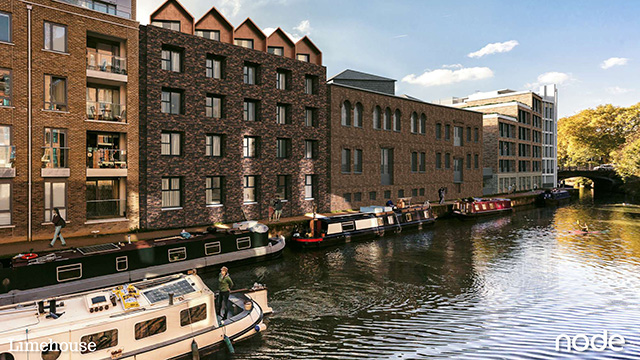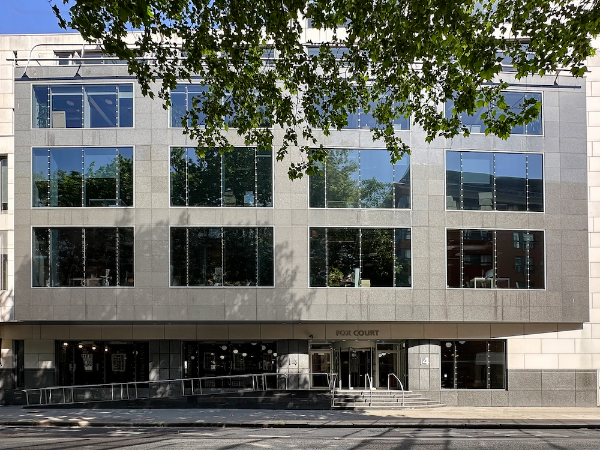UK: More than 240 industry leaders from the global hospitality and real estate sectors attended last week’s Urban Living Festival [ULF] at East Wintergarden in London’s Canary Wharf.
With changing demographics and social and economic drivers fuelling investor decisions across the broader urban living landscape, hospitality and real estate convergence continues to accelerate.
Business leaders from across the following asset classes and verticals gathered at Urban Living Festival: Hotels and serviced apartments; aparthotels / extended stay hotels; hostels; short-term rentals; coliving; build-to-rent [BTR] and student accommodation; senior living; the future of the office; coworking; sustainable buildings; and proptech.
As well as engaging content, ULF provided exhibition space, numerous networking opportunities all set against the backdrop of a festival feel, with food stations and a DJ.
From a context perspective, one of the standout highlights on Day Two was a session exploring “How is flexible living shaping the future of urban accommodation”. The session was moderated by Fred Lerche-Lerchenborg, CEO, Lavanda [a flexible PMS for flexible living], and panellists included Amanda Cupples, GM UK & Northern Europe, Airbnb; Brian Soss, senior vice president, asset management, Starwood Capital Group; Will Rowson, senior adviser, Node; and Pedro Sousa, VP portfolio management, Brookfield.
Lerche-Lerchenborg began by asking the panel what their definition of flexible living was, to which Cupples replied that her own company [Airbnb] had been founded on that exact context – providing choice, control and allowing guests to achieve the best quality of life possible
With more than 600,000 apartments listed on Airbnb in the United States, Soss and Rowson concurred that – no matter the asset class – guests and tenants wanted flexibility in tenure and in how they book, as well as a consistent look throughout the building and amenities.
As we emerge from the pandemic, Cupples described how the average length of stay had increased to such an extent that some people are staying in Airbnb listings for up to six months [or a record stay of two years] and 20 per cent of stays on the platform are now over 28 days, marking a significant shift.
That in turn aligns with Airbnb’s recently-launched Live and Work Anywhere initiative, which is seeing the company partner with 20 destinations around the world to make remote working easier and more accessible. Airbnb is increasingly seeking to address the long-term stay segment in its services, announcing over 150 upgrades to help long-term guests find the best property for them.
As Rowson hinted at the evolution of coliving over the last five years, Soss spoke about how the asset class could be increasingly attractive to those looking for short-term stays and how there is plenty of scope for a leader to emerge in the space, particularly in big US cities.
Similarly, Cupples cited the model of long-term tenants subletting their apartments on a short-term basis as an “interesting” concept that allows both landlords and tenants to unlock the benefits of renting [see Orion Haus]. She added that this poses “opportunities not challenges” to everyone in the ecosystem.
Another significant issue to arise from the conversation was that of affordability for renters.
Both Soss and Rowson suggested that flexible living solutions faced difficulties in being accepted in destinations around the world, whether they are deemed to be taking inventory from the longer-term residential market or planning and zoning restrictions are posing challenges. The consensus was that cities that allowed people to live and work flexibly would be more attractive to flexible renters and that the lodging product itself must be as flexible as possible without becoming a hotel.
Meanwhile, Brookfield’s Sousa said that the purpose of student housing is to create a community that helps people to share and do things together, as well as to set up young professionals for their careers. While it can be a rewarding project, this is only possible if you cater to affordability.
Rowson made a pertinent link between affordability and ESG [Environmental, Social and Governance] when intimating that any coworking building that is new must not only be environmentally sustainable, but it must also create a “ready-made” community. Such is the issue of loneliness felt by digital nomads and young professionals in big cities, projects like these can fulfil both the E and S in ESG, creating a more sustainable blueprint for the future.
Cupples also stated her case for how Airbnb is contributing to environmentally sustainable flexible living.
Last year, the home-sharing company partnered with a number of events, including the delayed 2020 Olympic and Paralympic Games in Tokyo and the COP26 Conference in Glasgow, to provide accommodation solutions in existing buildings or with current hosts on the platform. However, any solutions that underpin environmentally sustainable strategies must enhance local communities rather than disrupt them – the aim is for flexible stay guests to connect with their communities rather than simply dropping in and withdrawing altogether.
Click here to view the presentations from the event.
The previous day, delegates toured a range of properties around Canary Wharf, ranging from Vertus Living, a build-to-rent development; Cove – Landmark Pinnacle, an aparthotel; and Level39, a co-working business centre at 1 Canada Square that is home to 1,250 tech leaders in fintech, cyber, green tech, sustainability and more.
That was followed by a workshop hosted at Level39 on “How to convert an existing asset to become operationally net zero carbon” and a glittering drinks reception at the iconic Crossrail Place Roof Garden, also in Canary Wharf.
Urban Living Festival is the only leadership and investment event for urban innovators and investors at the cutting edge of contemporary hospitality, real estate and living.
Sponsors and partners included: Lavanda; Styled Interior Design [both headline sponsors]; YAYS; CoStays; IMS; Host & Stay; House and Garden [partners]; Flying Butler Apartments; Mura Living, Noli Studios; The Residence; UMEUS; Wyndham Hotels & Resorts [festival partners]; BENIHANA [restaurant partner]; LOFT [furniture partner]; STR Global [coffee sponsor]; T5 Strategies [supporting partner]; and Vertus [drink reception sponsor Day One].


